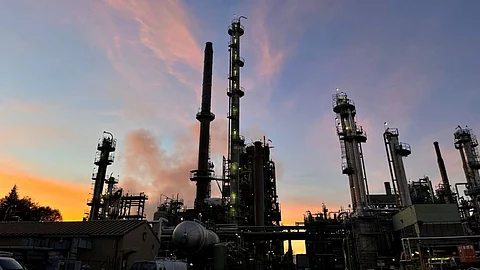

In a landmark deal, US fuel supplier Sunoco LP is acquiring Canada’s Parkland Corp. for approximately $12.5 billion (USD$9.1 billion) including debt, marking Sunoco’s return to the country where its legacy gave birth to Suncor Energy at a time when both companies are grappling with more than just a little cross-border turbulence.
That’s because Calgary-based Parkland, Canada’s largest independent fuel distributor and a growing leader in green fuels, has been the subject of a shareholder rebellion led by Simpson Oil Ltd., which owns nearly 20% of the company.
Sunoco, meanwhile is grappling with an uncertain economic and regulatory environment stemming from ongoing trade tensions and tariffs between the two countries
In announcing the deal on Monday, Parkland abruptly postponed its annual meeting — scheduled for Tuesday — where Simpson was expected to make a motion to replace a majority of the board after it posted a fourth-quarter, 2024 loss of $29 million compared to earnings of $89 million in the same period of 2023.
The acquisition effectively ends Parkland’s strategic review, launched in March under pressure from Simpson and activist investor Engine Capital.
The proposed transaction will now go to shareholders on June 24, in what’s shaping up to be one of the more dramatic proxy-season showdowns in Canadian corporate history.
The existing board has agreed to step down if the deal fails to conclude, and Parkland will be entitled to a USD$275 million break fee.
Sunoco, meanwhile, isn’t exactly coasting on clear roads.
The company faces an uncertain regulatory environment, especially with the Trump administration’s shifting economic policies and the lingering threat of tariffs that could disrupt cross-border fuel flows — making this acquisition as much a political hedge as a strategic expansion.
Still, the two companies insist the deal will create the largest independent fuel distributor in the Americas, combining Parkland’s 4,000-location footprint across 26 countries with Sunoco’s sprawling US network, which includes operations in Puerto Rico and Hawaii.
Parkland shareholders will receive CDN$19.80 in cash and 0.295 units of a new publicly traded entity, SUNCorp, for each Parkland share. Alternatively, they can opt for an all-cash (CDN$44) or all-equity offer, subject to proration.
In a nod to Canadian sensibilities, Sunoco has pledged to maintain Parkland’s Calgary headquarters and continue investing in the company’s Burnaby refinery, which produces low-carbon fuels and came to represent a symbolic cornerstone of Parkland’s green transition strategy.
“This strategic combination is a compelling outcome for Parkland shareholders,” said Parkland Executive Chairman Michael Jennings, which he said highlights Sunoco’s “commitment to safeguarding Canadian jobs” and to “further investing in Canada.”
It’s also a ‘full-circle’ moment for Sunoco.
The storied US brand’s Canadian operations — formerly Sun Oil — were spun off into what became Suncor Energy in 1979, now one of Canada’s oil sands giants.
Its quarter-billion investment to build the world’s first commercial oil sands mine using unproven technology in 1967 came to be known as “the biggest gamble in history” resulting in the Great Canadian Oil Sands project.
Thus, Sunoco regains a foothold in the market that once bore its name just as the North American energy landscape shifts under its feet.
The deal is expected to close in the second half of 2025 pending shareholder, regulatory and court approvals.
